Community Blog Building Bridges in Leipzig
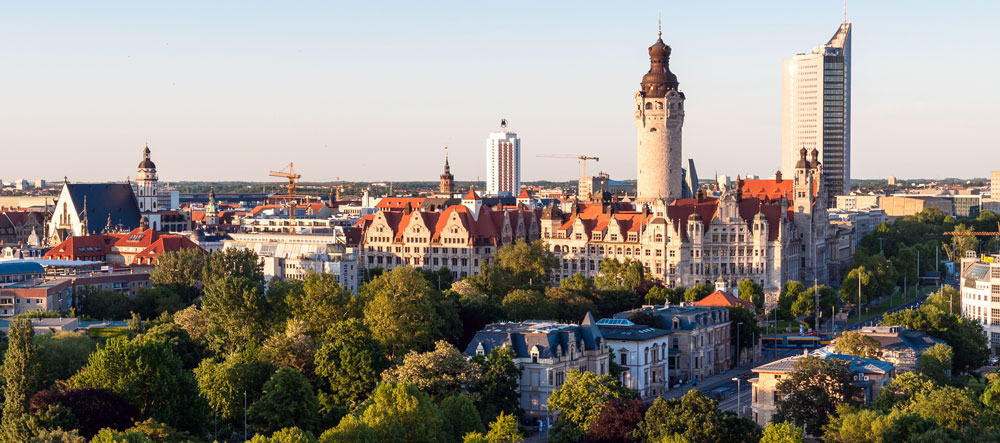
We are closer to God when we are asking questions than when we think we have the answers.
— Rabbi Abraham Joshua Heschel
When Rabbi Or Rose was invited to lecture in Germany while on fall sabbatical in Salzburg, Austria, he welcomed the opportunity. It was a chance to build bridges, ask questions, and disrupt assumptions—all hallmarks of his work as director of the Miller Center for Interreligious Learning & Leadership of Hebrew College.
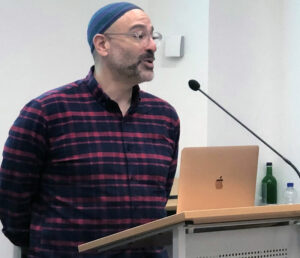 Rose was invited by Dr. Yemima Hadad, professor of Jewish Studies at Leipzig University, whom he met through a German colleague he collaborated with the International Conference of Christians and Jewish (ICCJ) co-hosted by the Miller Center in Boston last June. “Dr. Hadad and the staff at the University of Leipzig were wonderful hosts and discussion partners,” said Rose, whose November lectures were titled, “Spirituality & Social Justice: Abraham Joshua Heschel & Martin Luther King, Jr.” and “Rainbow Hasidism: Zalman Schachter-Shalomi & American Counter-Culture.”
Rose was invited by Dr. Yemima Hadad, professor of Jewish Studies at Leipzig University, whom he met through a German colleague he collaborated with the International Conference of Christians and Jewish (ICCJ) co-hosted by the Miller Center in Boston last June. “Dr. Hadad and the staff at the University of Leipzig were wonderful hosts and discussion partners,” said Rose, whose November lectures were titled, “Spirituality & Social Justice: Abraham Joshua Heschel & Martin Luther King, Jr.” and “Rainbow Hasidism: Zalman Schachter-Shalomi & American Counter-Culture.”
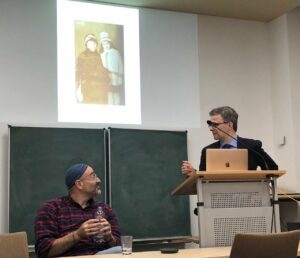 “Rabbi Rose gave a very personal and inspiring evening lecture on Heschel and Martin Luther King to an audience of students in Protestant theology and education, faculty and community members. The questions the lecture raised were especially relevant to the German audience struggling with its own history and the recent rise of antisemitism in Europe,” said Hadad. “The next morning Rabbi Rose drew a large crowd of students and colleagues to learn about the remarkable story of Zalman Schechter Shalomi. Many students stayed beyond the class time to speak with him. Some told me afterwards that this conversation was exactly what they needed in these difficult times and that he literally brought light to their lives.”
“Rabbi Rose gave a very personal and inspiring evening lecture on Heschel and Martin Luther King to an audience of students in Protestant theology and education, faculty and community members. The questions the lecture raised were especially relevant to the German audience struggling with its own history and the recent rise of antisemitism in Europe,” said Hadad. “The next morning Rabbi Rose drew a large crowd of students and colleagues to learn about the remarkable story of Zalman Schechter Shalomi. Many students stayed beyond the class time to speak with him. Some told me afterwards that this conversation was exactly what they needed in these difficult times and that he literally brought light to their lives.”
“I was excited to share materials I am actively working on during my sabbatical,” said Rose, who has been writing an academic study of Rabbi Zalman Schachter-Shalomi’s emergence as an interreligious practitioner and a biography of Rabbi Abraham Joshua Heschel for teens. “It seemed fitting to lecture on two outstanding Jewish figures who were formed, in part, by German culture, narrowly escaped the worst of the Nazi onslaught, and went on to become spokespeople for dignity, compassion, and justice.”
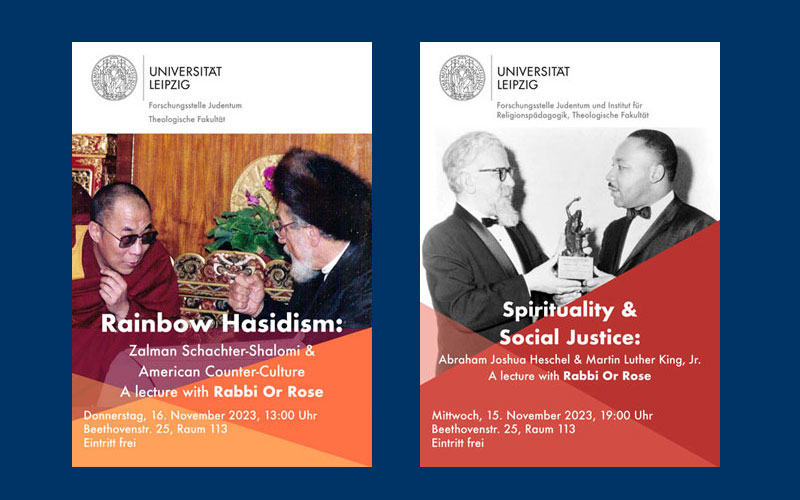
Being in Leipzig also gave Rose the opportunity to connect his academic and religious work with his personal connection to the city. “It was very meaningful for me to visit Leipzig. My maternal grandmother and her family lived there before the Holocaust. In fact, I am named for my great grandmother, who was born in Poland but lived much of her life in Leipzig. Tragically, she was deported to Auschwitz and was murdered there,” he recalled. Rose said he opened both of his presentations by briefly mentioning his family history and sharing a photograph of his great grandmother and grandmother from the 1920s. “I thanked these women and so many other Jewish people throughout the ages for persevering under very difficult—sometimes brutal—conditions. I also reminded the lecture attendees that antisemitism continues to be a real danger throughout the world today, and that we must all engage in the development of a global ethic of human dignity,” said Rose.
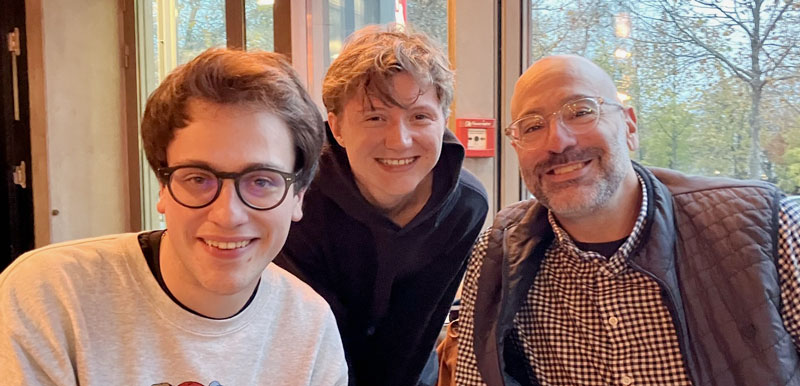
Rabbi Rose with Leipzig University students
Despite the challenges the Israel-Hamas war has brought to the academy and interreligious work, and the rising antisemitism in Europe and the world, Rose says his experience in Germany and Austria has been largely positive. Nonetheless, his Christian and Jewish colleagues have advised him not to wear a kippah or other Jewish symbols in certain public settings—and these recommendations have become more frequent since the brutal October 7 Hamas terror attack and the ensuing conflagration.
“Sadly, I have had conversations with well-intentioned people who express sentiments about Jews, Judaism, and the State of Israel that are based on misinformation and bias. But it has given me the opportunity to refine my skills as a dialogue partner and educator,” he said. “I do so knowing that we all have limited understanding of other individuals and groups, and that we have to be willing to challenge assumptions, and when possible, enter into deeper, more sustained, conversation. While indignation certainly has its place, we also need to foster humility, curiosity, and empathy.”
Learn more about Rabbi Rose and his work here.

